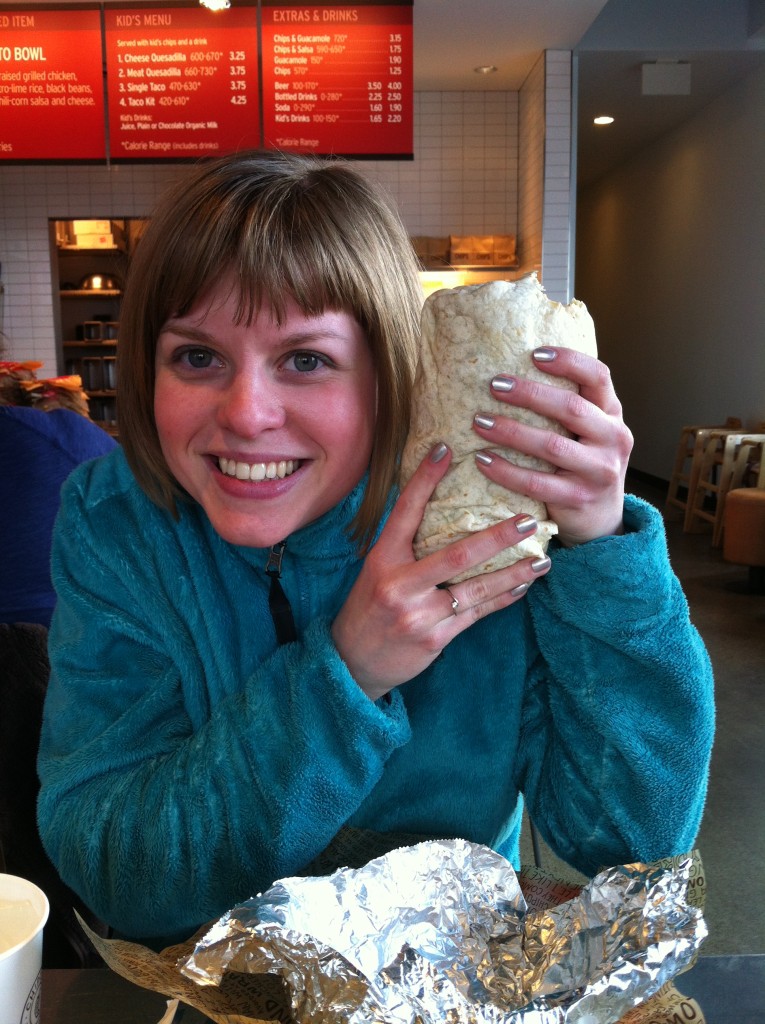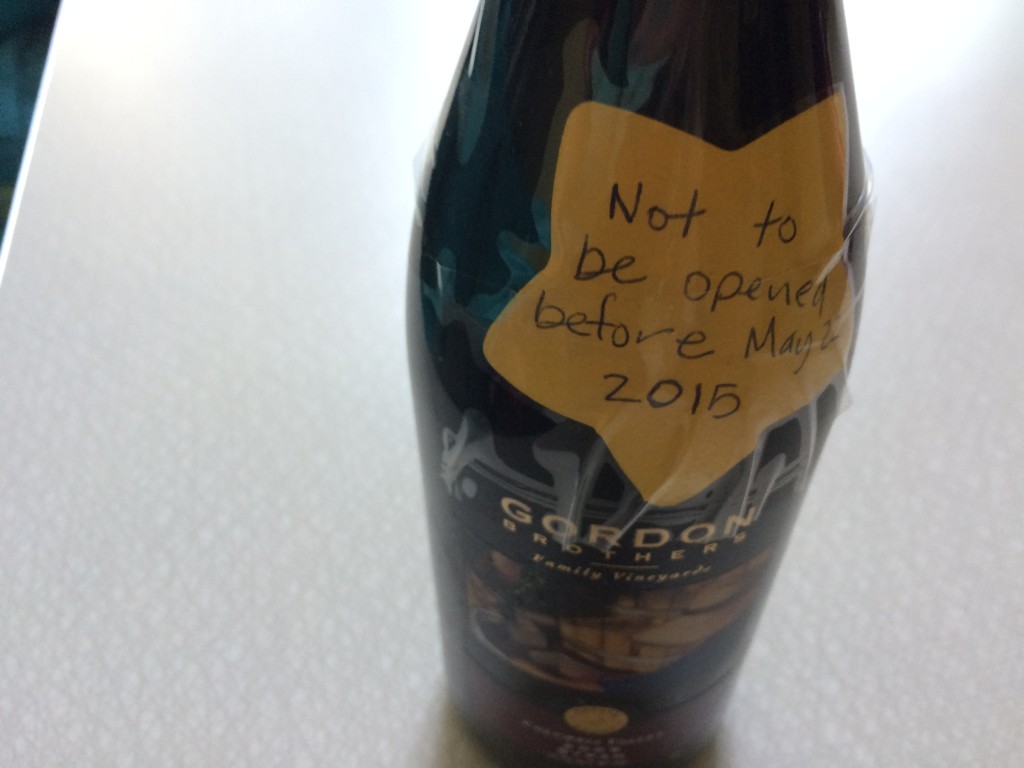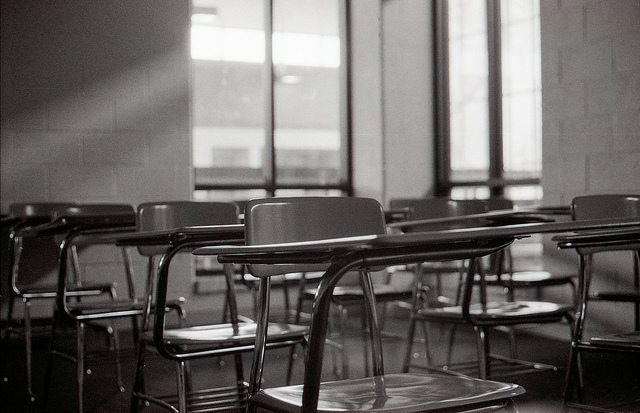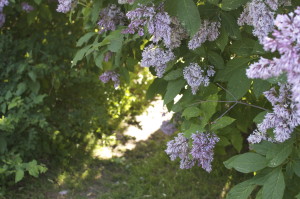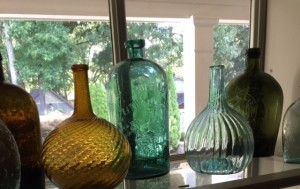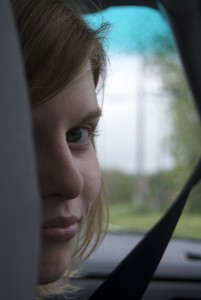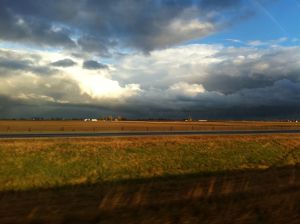Sometime in between “we are through” and actually being through, I got a new job and moved to “his town,” the town where my (now ex-) boyfriend lived during part of the time we were dating. He lived in an apartment above a store that sold brightly colored men’s suits. One of a handful of stores and restaurants in the downtown main street square of a small Georgia town.
After I moved there, I drove downtown and parked in one of the nose-in angled spots on the street where he used to stand by my car and kiss me good-bye. I strolled past the storefronts, saw the entrance to the apartments above with the push button intercom where I would call up and he’d buzz me in. He was no longer there but that was his building. Up those stairs, we would laugh and talk and I would roll my eyes at his corny puns. On the nights we watched a movie, cuddled on the couch, he’d stand up as the credit music began to play and offer me his hand, pulling me into a slow dance under the skylight above our heads.
*******
A couple of months after he moved away from that town and our relationship gained geographical distance, he called me one weekend to say he was in town. He wasn’t there to see me, not specifically anyway. There had been a small fire at his old apartment. The landlord had called him. I was confused as to why he was notified, why any of his stuff was there.
“Oh. I just kept renting the apartment,” he said.
By this point in the relationship I was used to convincing myself to believe what he said. Used to ignoring questions in my gut and flipping down red flags. So, I accepted the explanation and jumped straight into planning when and where to meet up for an impromptu date, swept up in the romance of the unexpected.
*******
That day I moved to the town there was still a long aluminum chute that emptied into a dumpster hanging from one of the back windows of his building, evidence of the fire clean up.
I stared at it – wondering what blackened belongings of his had been thrown down it. Did the couch where we dreamed about the future survive or was it in ashes? What was left of the kitchen counter where I would sit and listen to him narrate his way through preparing dinner as if he had his very own Food Network show?
The last few months he lived in that apartment I was never inside of it. He called me one day and won my heart a little more by saying, “I think we should make sure that we don’t hang out alone in my apartment anymore. I want to be better at honoring you.” Reluctantly, but admiringly, I agreed. I treasured his leadership in our relationship. “Honoring,” in our shared vocabulary at the time, meant no more kissing (or more) in private.
I had been raised to believe that men lead and pursue and I wait and follow. I was told that a godly man would lead in godly ways. More than one youth group story had centered on a young man who went to pick up his date and then turned around and left when he saw her, because he was lusting so they needed to not spend time together in order to honor God. And here I was with my very own godly leader who put God above me.
Yet there was that aluminum chute and a dumpster full of ash and rubbish.
I wondered what belongings of hers were in the dumpster. The other girlfriend that had moved in a few months before he left. The one that stayed to finish out the year at her teaching job while he took his new job a few hours away. The one who called and told him about the fire. The woman he was living with while he was “honoring” me.
*******
After the fire but before I knew about the other woman, I called him and choked out, “I can’t do this anymore. I can’t feel like this anymore.”
“Are you breaking up with me?” he asked, surprised.
“Yes.” He didn’t fight, he just got mad and hung up.
I blamed myself. Over and over, the same message played in my mind: I wasn’t strong enough to make the distance work, to make him work. After trying for years, I was tired.
A couple weeks later, he called and renewed my hope by saying he wanted me back. I drove two hours to surprise him, my stomach in knots the entire way down because subconsciously I knew the one who was more likely to be surprised was me. I needed to not be able to lie to myself anymore. I needed to physically see and hear and know so that I could move on.
A woman yelled from inside for him to answer the door. With wide eyes he called inside to her, “It’s someone from work! I’ll be back!”
 We sat near a river bank and I watched with the muddy water flow by as he told me that he chose her, that he wanted someone who was physically close, that the long distance was too much.
We sat near a river bank and I watched with the muddy water flow by as he told me that he chose her, that he wanted someone who was physically close, that the long distance was too much.
“Why didn’t you just break up with me?” I questioned.
“I didn’t want to hurt you,” he said.
I drove home in tears. Mad at him. Mad at God. Mad at myself because the signs littered the road for the past three years.
*******
I stayed in my new, his old, town for two and a half years. The aluminum chute was still there when I left.
He visited once. I visited once. He called often. I blocked and unblocked his number. He stayed with the other woman. He told me I was better than her. I begged him to let me be, to let me go. I told him I didn’t know how to walk away. I was addicted.
My brain didn’t know how to stop forgiving him, to stop believing that the good outweighed the bad, to stop my heart from trusting that things would improve and that my fantasy would come true.
I didn’t reclaim that town those years. I didn’t even reclaim my life.
*******
Ten years after the fire, I drove through that town again. The aluminum chute was gone. In the years between, I had learned to sort truth from lie from unknown in the jumbled web of memories from the years spent with him. I had quit my addiction and gained a clarity about myself that is perhaps only possible when forged in fire.

